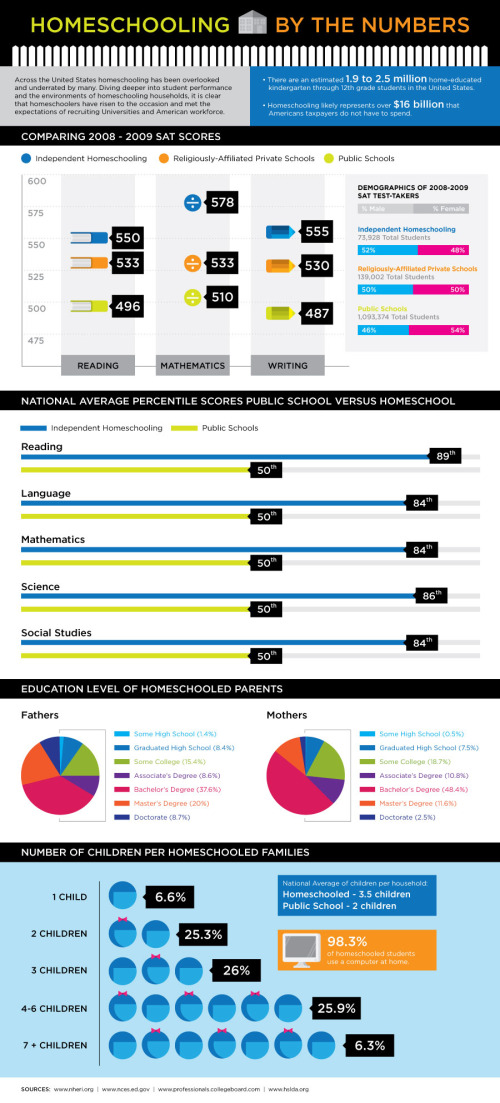Homeschooling: By The Numbers infographic
Homeschooling: By The Numbers is a good infographic from the DegreeSearch.org blog. Simple statistics with a very clean design, but varied use of data visualization styles (bars, scales, pies).
Homeschooled students generally achieve higher SAT scores in reading, math and writing; as well as, ranking in the 80th percentile for math, science, social studies, language and reading. This may be due to the higher level of education of fathers and mothers that stay home to teach their children. Most have some college, an associates degree, or a bachelors degree.
Found on the Daily Viz from Visual Loop









 Randy
Randy

Reader Comments (6)
I won't really talk about the pie chart for the education level of parents, with which I have to jump from 1 pie to the other to figure out if the ranking is different ...
No, what bugs me most is the number of children per homeschooled families. 3 children and 4-6 children homes have about the same value (26 vs 25.9%), but since they are represented by the number of children one would first think the there are more homeschooled large families than smaller families ...
Bottom line: this infographic is interesting but ultimately fails to control sufficiently for some very relevant variables.
"So, what about socialization?" is the oldest question in the book.
Perhaps these kids will have less emotional scarring than their schooled counterparts, but how can you measure that?
And Sarah, I think many families that choose to homeschool believe in having one parent stay at home, regardless of income. They find a way to make it work. Where honeschooling is less of a privledge and more of a practice.
I will def look at Stevens' writing!